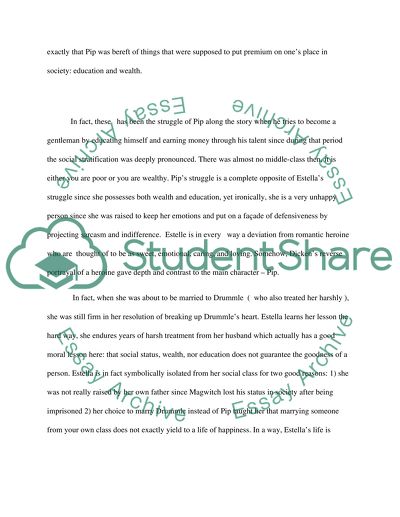Charles Dickens, Great Expectations Essay Example | Topics and Well Written Essays - 750 words. Retrieved from https://studentshare.org/miscellaneous/1552926-charles-dickens-great-expectations
Charles Dickens, Great Expectations Essay Example | Topics and Well Written Essays - 750 Words. https://studentshare.org/miscellaneous/1552926-charles-dickens-great-expectations.


